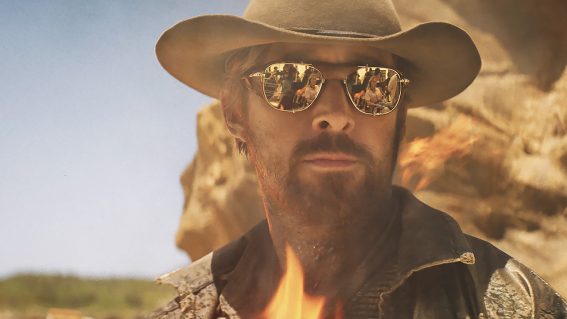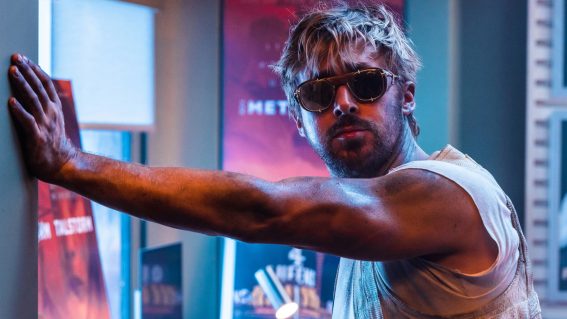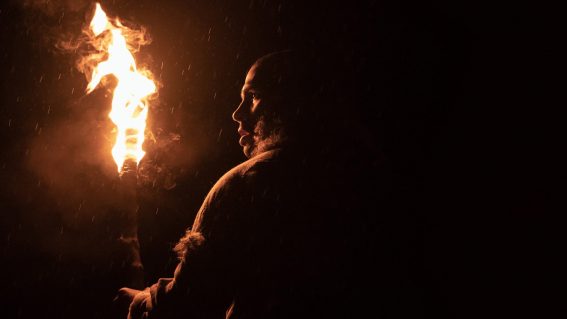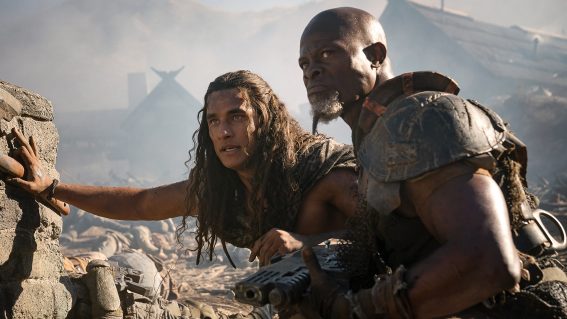BlackBerry is a charming, clever origin story of that phone with the QWERTY keyboard
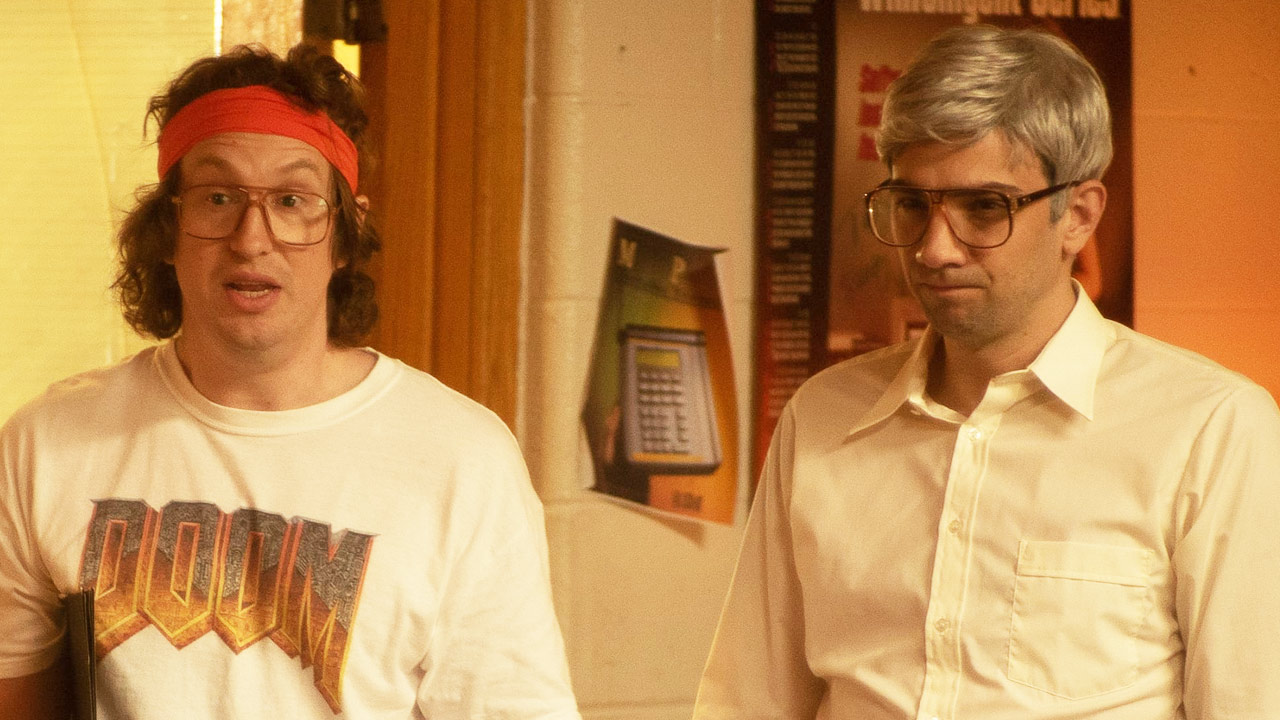
Don’t go into BlackBerry imagining a dry account of the once-prominent mobile phone. This is a very entertaining and deceptively well-written film that comes across as charmingly effortless, writes Luke Buckmaster.
BlackBerry
Movies about creating products, god help us, are all the rage at the moment. Tetris explored the origins of a popular video game; Flamin’ Hot the making of a famous snack, Cheetos; The Beanie Bubble the meteoric rise and precipitous fall of pellet-stuffed plush toys. Now BlackBerry arrives to dramatize the story of the iPhone. Kidding, kidding. Director Matt Johnson of course focuses on the mobile device that arrived before Apple’s industry-realigning product sent it the way of the dodo. Famous for its physical QWERTY keyboard, a feature that felt earth-shatteringly brilliant at the time but quickly became awfully passé, the BlackBerry arrived in 1999 and was the bee’s knees for a brief window in time, once controlling 45% of the mobile phone market.
An origin story about a now-defunct device doesn’t sound like a hoot a minute. But Johnson makes it bouncy and funny, balancing character-oriented comedy with, in its own modest way, authoritative drama that before you know it creeps into serious messaging, as if arriving there organically. This very entertaining film has something to say about the inevitability of change and the temptation to squander your morals in the face of obsoletion. Early in the runtime, the CEO of the company that created the BlackBerry, Jay Baruchel’s Mike Lazaridis, is troubled by the buzzing of an intercom and decides to fix it on the spot, despite being late to a pitch meeting with a potential investor. He notes the product was made in China, which he calls “the mark of the devil.”
This amusing moment works on its own, helping establish both Mike’s character and the film’s unprepossessing personality. We understand only in hindsight how this scene functions on other levels, creating the foundation for a quandary returned to later on—when Mike is caught in a very different corporate reality and its pressures come back to bite him. The cleverness of the script (co-written by Johnson and Matthew Miller, adapting a book called Losing the Signal) is camouflaged from the opening moments, which capture Lazaridis and his bumbling bestie and company co-founder, Doug Fregin (Johnson), running late to the aforementioned meeting with hard-knuckle businessman Jim Balsillie (Glenn Howerton). Jim subscribes to Wall Street’s “lunch is for wimps” manifesto. Mike and Doug are from Revenge of the Nerds.
Their meeting goes entertainingly awry, a visibly uncomfortable Mike reading from cue cards and Doug failing to save the pitch with his declaration of “a pager, a cell phone and an email machine all in one thing.” This line doubles as an audience reminder or summarising statement about the device’s game-changing aspects. Again we don’t necessarily realise the writing working on multiple levels. Eschewing grandiosity, cinematographer Jared Raab’s wobbly vérité-tinged camerawork also implies understated-ness, complimenting Johnson’s aversion (notwithstanding some moments of well-judged dramatic inflection) to putting important points in highlighter pen.
It’s not quite right to say that Mike and Doug walk away from the meeting empty-handed. Jim contacts them and offers a deal: make him co-CEO of the company and he’ll quit his existing job (they don’t know that he’s been fired). Mike agrees. When the vein-popping, Malcolm Tucker-esque corporate shark boulders in, throwing his weight around and going ballistic at their dweeby employees, it’s a funny chalk-and-cheese dynamic. Anyone who’s ever asked computer developers to achieve something, only to slam against a wall of ifs, buts, and maybes, may experience some guilty appreciation of Jim’s antics. Not that we want to feel too much support for him. He’s the kind of guy who’ll exclaim “my wife’s in labour!” just to get a cab driver to drive faster.
Glenn Howerton’s performance as Jim is a little one-note, but not in a bad way. The character feels legit from the get-go. Jay Baruchel as Mike, on the other hand—I didn’t really believe him. His acting is too unreal, too close to cartoon. But I wouldn’t want anybody else in this part. Baruchel and Johnson are on the same page: that it’s better to be entertaining and accessible than overly serious and distancing. The best thing about BlackBerry is that it’s a delight to watch, but you take it seriously as a drama. It earns your respect and it comes across as charmingly effortless. Even little giggle-inducing moments don’t seem like they’re working for a laugh. These moments can be simple, like the sight of Doug reaching for his Ninja Turtles velcro wallet. Sometimes the small touches say the most.





